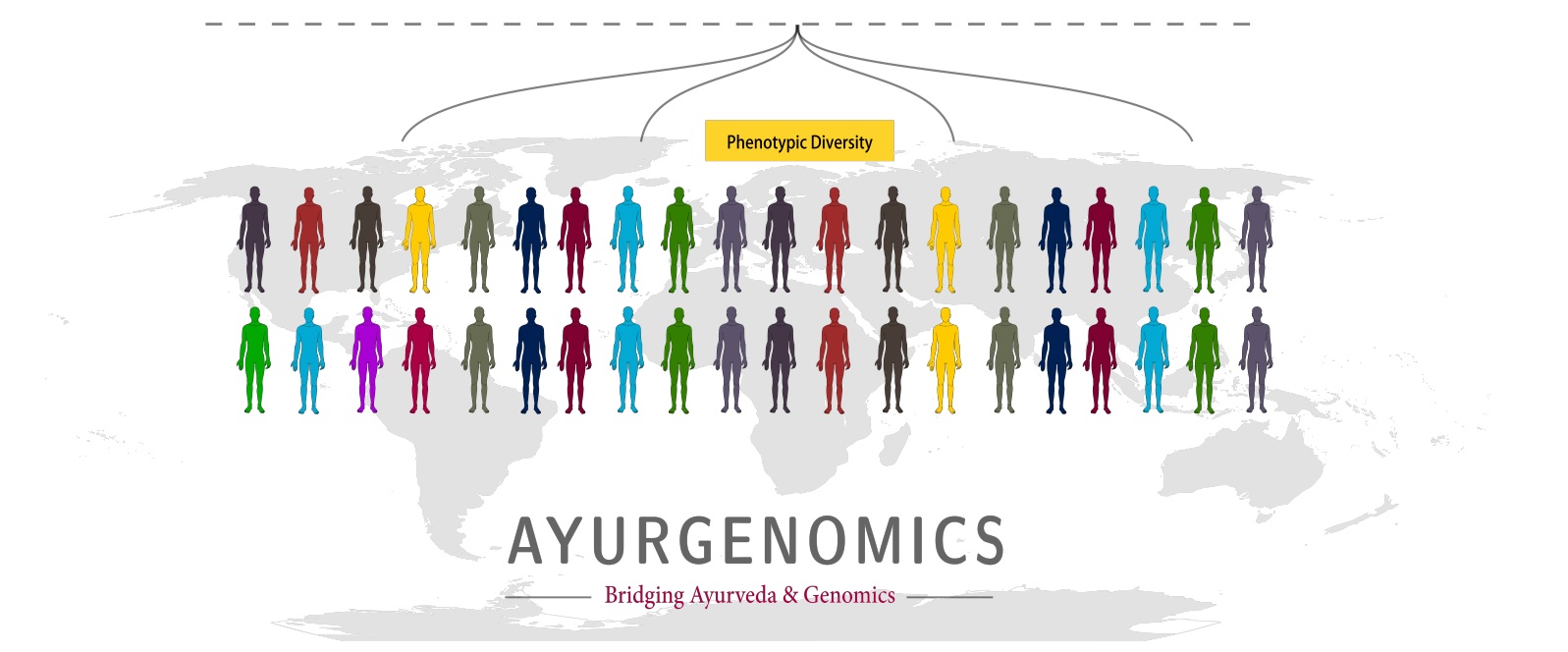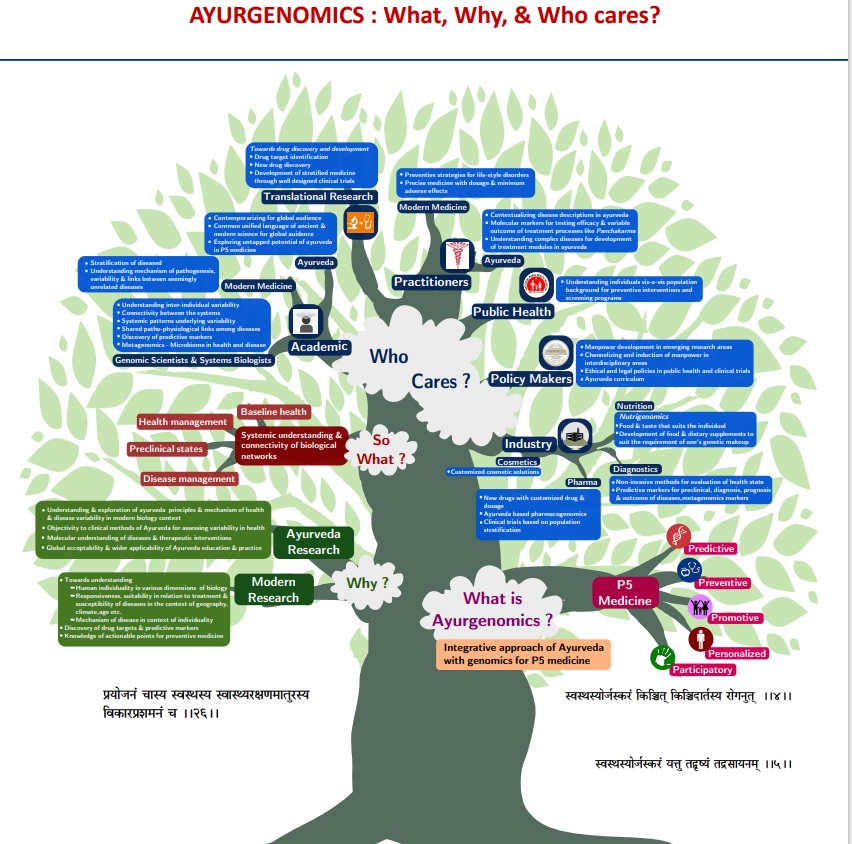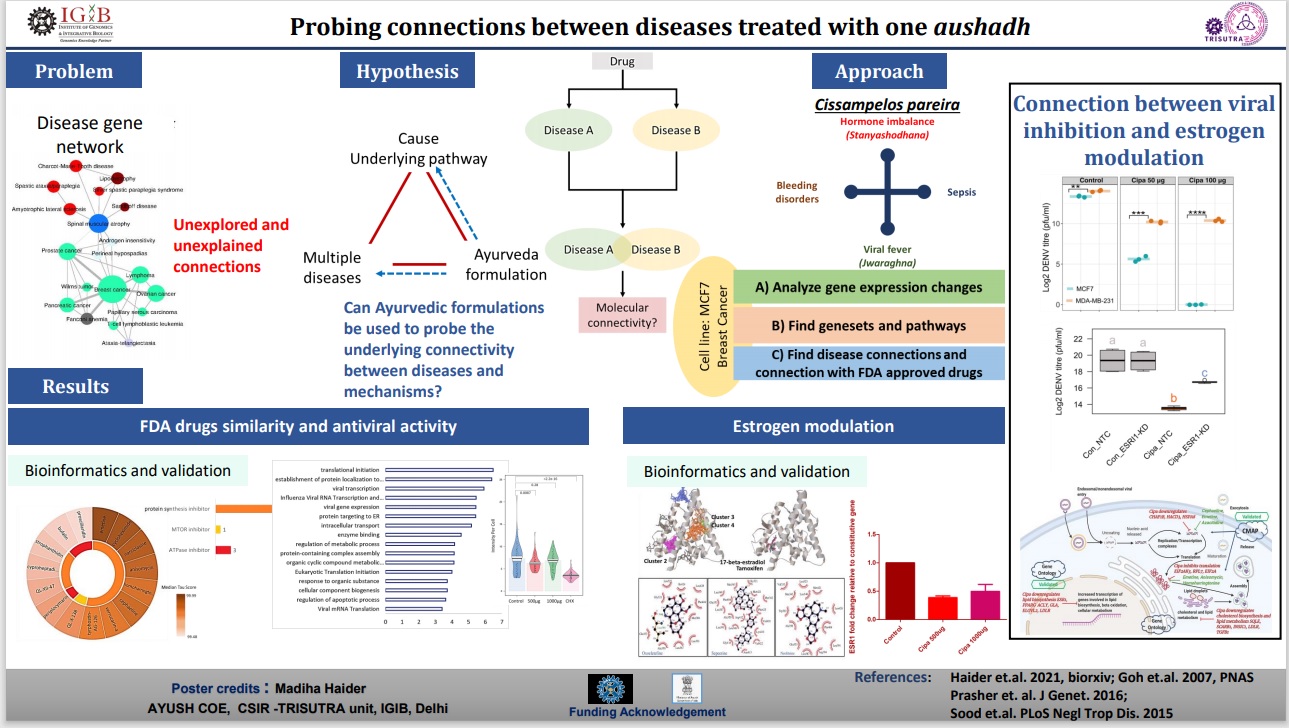
In Ayurveda, a formulation is often used to treat multiple diseases. This implies that there might be underlying connections between these which can be explored. To do this, we used cissampelos pariera a formulation used to treat hormone disorders and various kinds of infectious fevers. We found that Cissampelos may be acting through the estrogen receptor in hormone disorders and in dengue viral infection.
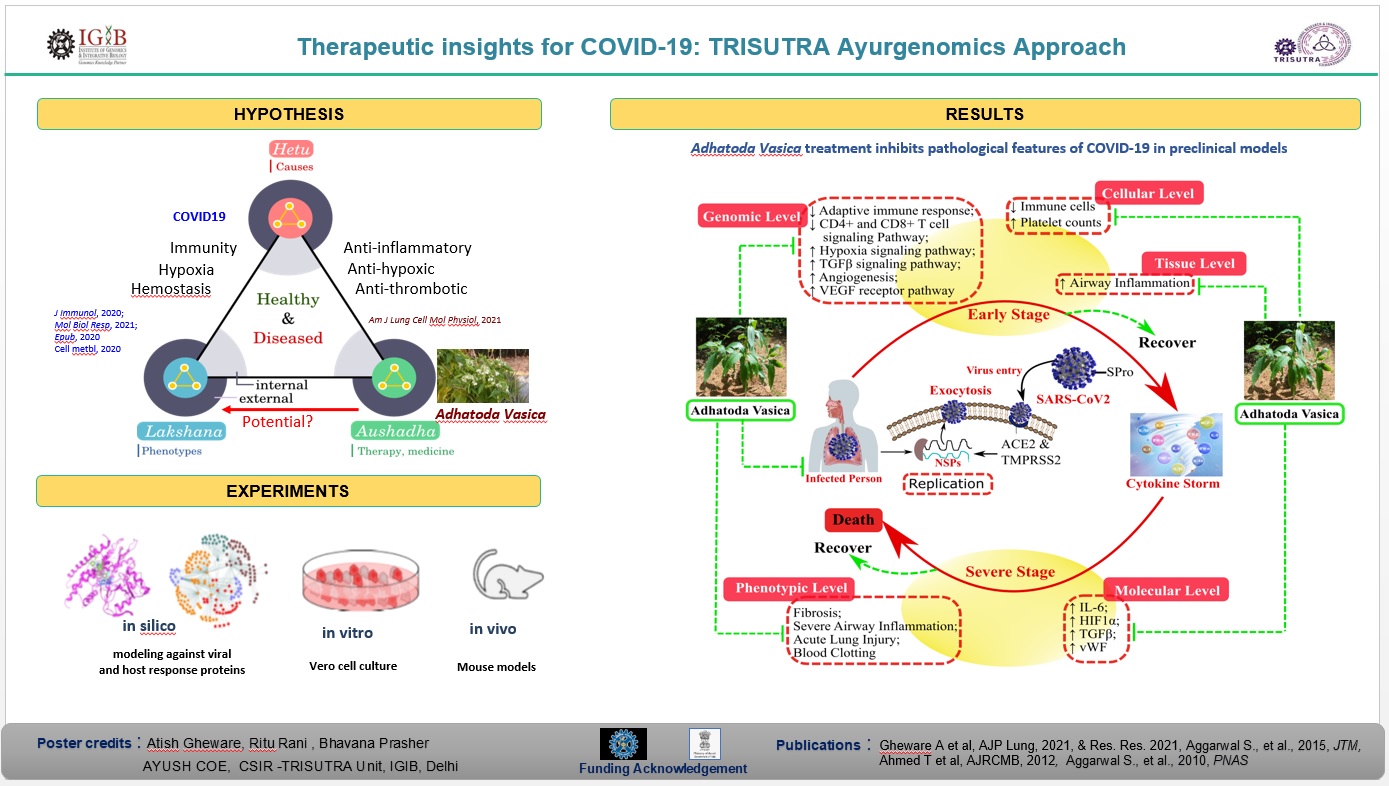
COVID-19 has been associated with severe acute hypoxia, inflammation and thrombosis. Earlier we have shown that whole aqueous extract of Adhatoda Vasica (AV) has an anti-hypoxic and anti-inflammatory effects. We further explored its effects on other preclinical mouse models involving hypoxia as cause or modifier of disease. AV extract attenuates airway inflammation, and levels of TGF-β1, IL-6, HIF-1α in the mouse models of pulmonary fibrosis and sepsis. AV treatment rescues the siRNA-induced inflammation and thrombosis phenotypes in mice. In addition to host response modulation it also in vitro showed viral inhibition in Vero cells infected with SARS-CoV2. It highlights the repurposing potential of AV in COVID-19-like conditions.
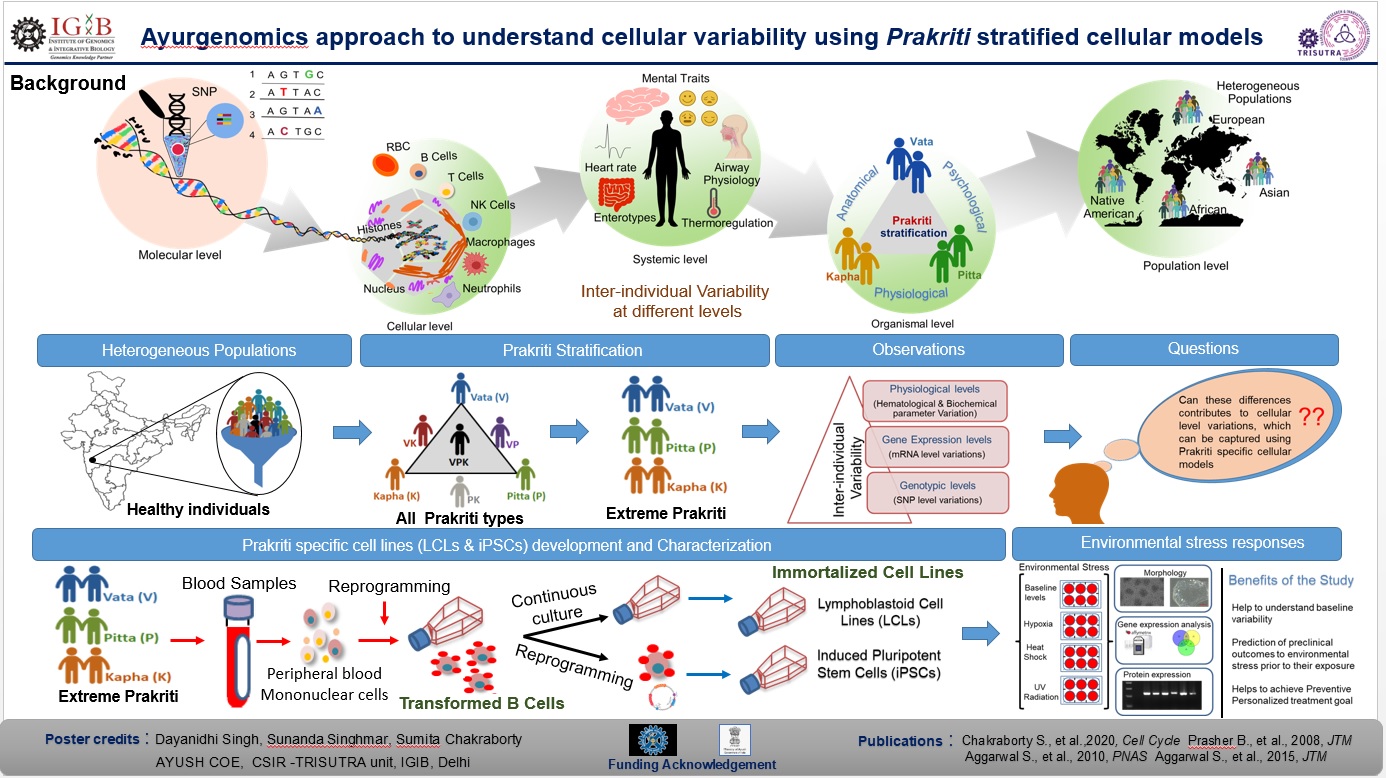
Genomic and Molecular Variability among the healthy individuals at multiple levels can contributes to inter-individual variability at population levels. Variability at molecular and phenotype levels among healthy individuals stratified by prakriti, has been shown by our group earlier using ayurgenomics approach. In current study, we are trying to explore cellular level variability among extreme prakriti individuals. We developed two sets of immortalized cell lines (Lymphoblastoid Cell Lines (LCLs) & Induced Pluripotent Stem Cells (iPSCs)) of extreme Prakriti (healthy) individuals. These cellular models are studied at their base line levels and in response to different environmental stress conditions like Hypoxia, Heat shock and UV radiation. This is expected to provide cellular and molecular mechanisms underlying prakriti and leads for preventive and personalised approach in medicine
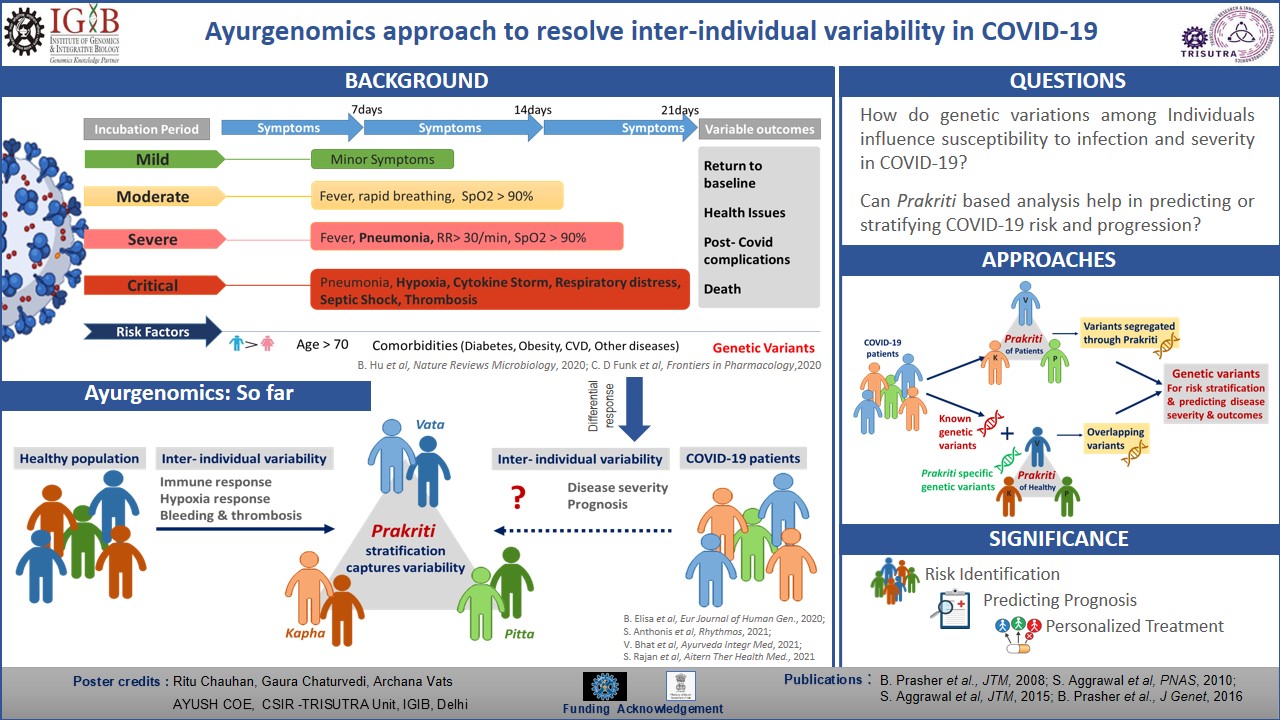
The COVID-19 infection manifests through a wide range of disease presentation and outcomes which demonstrate the inter-individual variability. Using Ayurveda based phenotype stratification, Prasher et al have shown the inter-individual differences in immune response, hypoxia , and hemostasis axis among healthy individuals of different Prakriti types. Here, we hypothesize that integrative approach of Ayurgenomics with method of population stratification may offer a way towards risk identification, predicting prognosis, and personalized management for COVID-19.


